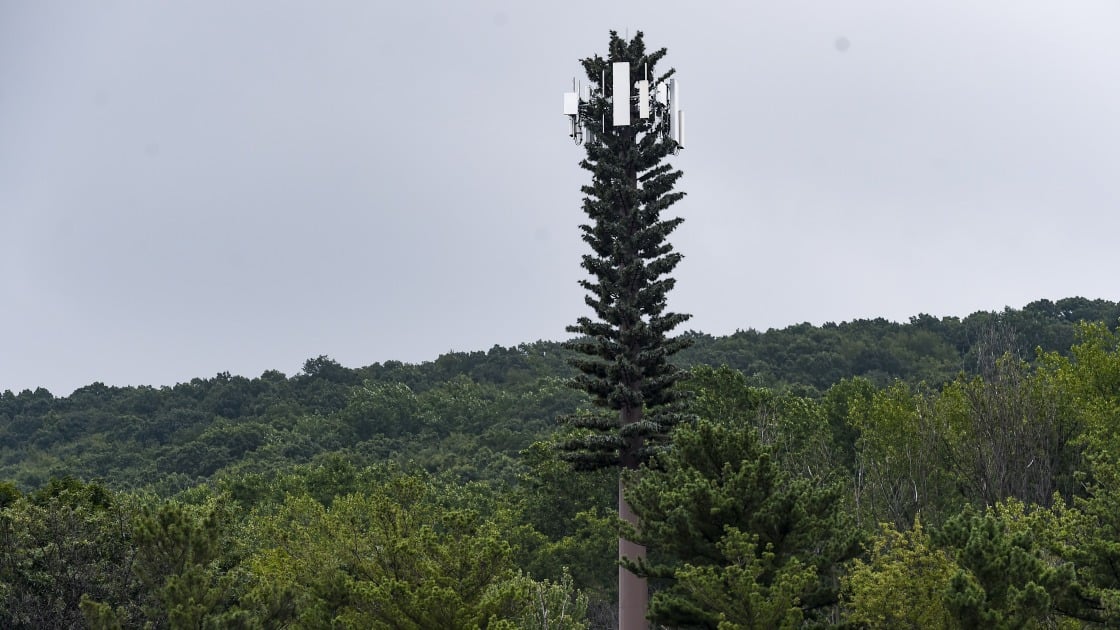Don’t miss out on our latest stories. Add PCMag as a preferred source on Google.
The FCC took two steps forward and one step back in making broadband internet more widely available, voting Tuesday to speed wired and wireless broadband buildouts and then cutting off federal funding for two school Wi-Fi programs.
The proposals from FCC Chair Brendan Carr to try to lower state and local obstacles to building broadband infrastructure–a key part of the “Build Agenda” he announced in July–won unanimous support from the three members of what’s normally a five-person commission. They agreed to begin writing rules to limit how municipalities and states can impose requirements and costs on cell sites, which stands to benefit wireless carriers.
The 51-page Notice of Proposed Rulemaking covers such issues as “concealment” rules that require wireless carriers to camouflage cell towers as trees, one-time application and recurring access charges, how long permits take to be issued, and dispute-resolution processes.
The FCC didn’t lend the same hand to wireline providers, instead voting 3-0 to launch an inquiry, an earlier stage in its rulemaking process, that asks for comment on whether and how the FCC could “require state and local governments to process applications to access and use public rights-of-way in a timely manner and limit their fees and other demands for compensation as necessary to avoid prohibitive financial burdens.”
(It doesn’t mention steep fees charged by railroads for broadband lines that cross their tracks, an issue that’s come up in Virginia.)
Permitting holdups are a serious issue for wired broadband, as former National Telecommunications and Information Administration Director Alan Davidson acknowledged in an interview last March. That agency is in charge of the $42 billion nationwide broadband buildout effort launched by the 2021 infrastructure law. Even after the Trump administration required states to give wireless and satellite providers another chance to submit bids, most of that spending is going to wired infrastructure.
Get Our Best Stories!
A Smart, Bold Take on the Wireless World

Sign up for the Fully Mobilized newsletter to get our top mobile stories delivered right to your inbox.
Sign up for the Fully Mobilized newsletter to get our top mobile stories delivered right to your inbox.
By clicking Sign Me Up, you confirm you are 16+ and agree to our Terms of Use and Privacy Policy.
Thanks for signing up!
Your subscription has been confirmed. Keep an eye on your inbox!
Harold Feld, SVP at Public Knowledge, agreed that there are important issues here, saying, “You don’t want to ignore tower siting.” But he questioned how much authority the FCC has to overrule states and localities, especially after it has moved so aggressively to deregulate broadband providers by killing net-neutrality rules and renouncing its basic regulatory authority over them. “At the end of the day, the power of the FCC in this area is very limited,” he said.
‘Turning the Digital Divide Into a Digital Chasm’
The commission does, however, clearly control how it hands out its own broadband subsidies, and on Tuesday, its Republican members–Carr and Olivia Trusty, confirmed by the Senate in June after the surprise resignation of Nathan Simington–voted to cut off funds that supported schools putting Wi-Fi hotspots on buses and loaning them to students.
Recommended by Our Editors
The commission had launched those subsidies under the previous chair, Jessica Rosenworcel, to narrow what that Democratic appointee called “the homework gap,” or how inadequate or nonexistent broadband at students’ homes can hobble their homework.
Carr and Trusty held that schools offering broadband off-site did not match the “best reading” of the Telecommunications Act’s universal-service provisions; with their decision, the commission will deny pending and future funding requests to cover those services.
Democratic Commissioner Anna Gomez voted against Carr’s proposals to terminate those funding programs and released nearly identical statements, calling each a rushed decision that disregarded the latitude Congress gave to the FCC to support schools and ignored real-world conditions, such as the average school-bus commute time of more than 50 minutes in Arkansas.
Both statements concluded with the same line: “Because I cannot support turning the digital divide into a digital chasm, I dissent.”
About Our Expert

Experience
Rob Pegoraro writes about interesting problems and possibilities in computers, gadgets, apps, services, telecom, and other things that beep or blink. He’s covered such developments as the evolution of the cell phone from 1G to 5G, the fall and rise of Apple, Google’s growth from obscure Yahoo rival to verb status, and the transformation of social media from CompuServe forums to Facebook’s billions of users. Pegoraro has met most of the founders of the internet and once received a single-word email reply from Steve Jobs.


